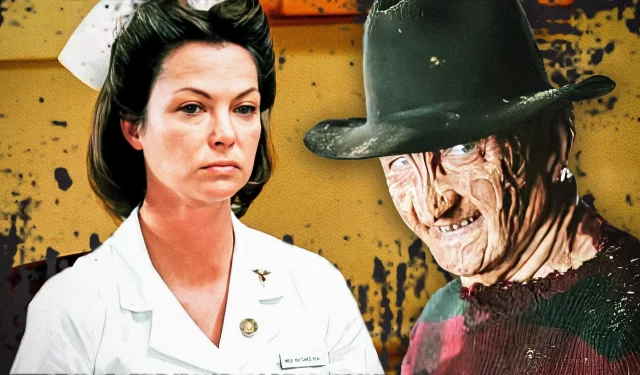
The essence of a captivating cinematic hero often hinges on the presence of a formidable villain. Throughout the evolution of film, audiences have met a myriad of unforgettable adversaries—ranging from tyrannical authorities to psychopathic killers—whose malicious intents and intricate motivations heighten the drama and tension of countless stories. In many instances, villains serve as a dark counterpart to the hero’s persona, occupying a vital role in the narrative that allows them to outshine even the protagonists in cultural impact.
Some of cinema’s most revered films owe their acclaim to the powerful villains woven into their plots, offering characters whose morally ambiguous actions prompt audiences to reflect on their own ethical standings. From an actor’s standpoint, embodying a villain presents a thrilling challenge; the inherent chaos and depravity often lead to performances that resonate deeply with viewers. Though heroes typically emerge victorious, the lasting legacy and charm of these villains undeniably endure, captivating fans long after the credits roll.
15 Nurse Ratched
One Flew Over the Cuckoo’s Nest (1975)
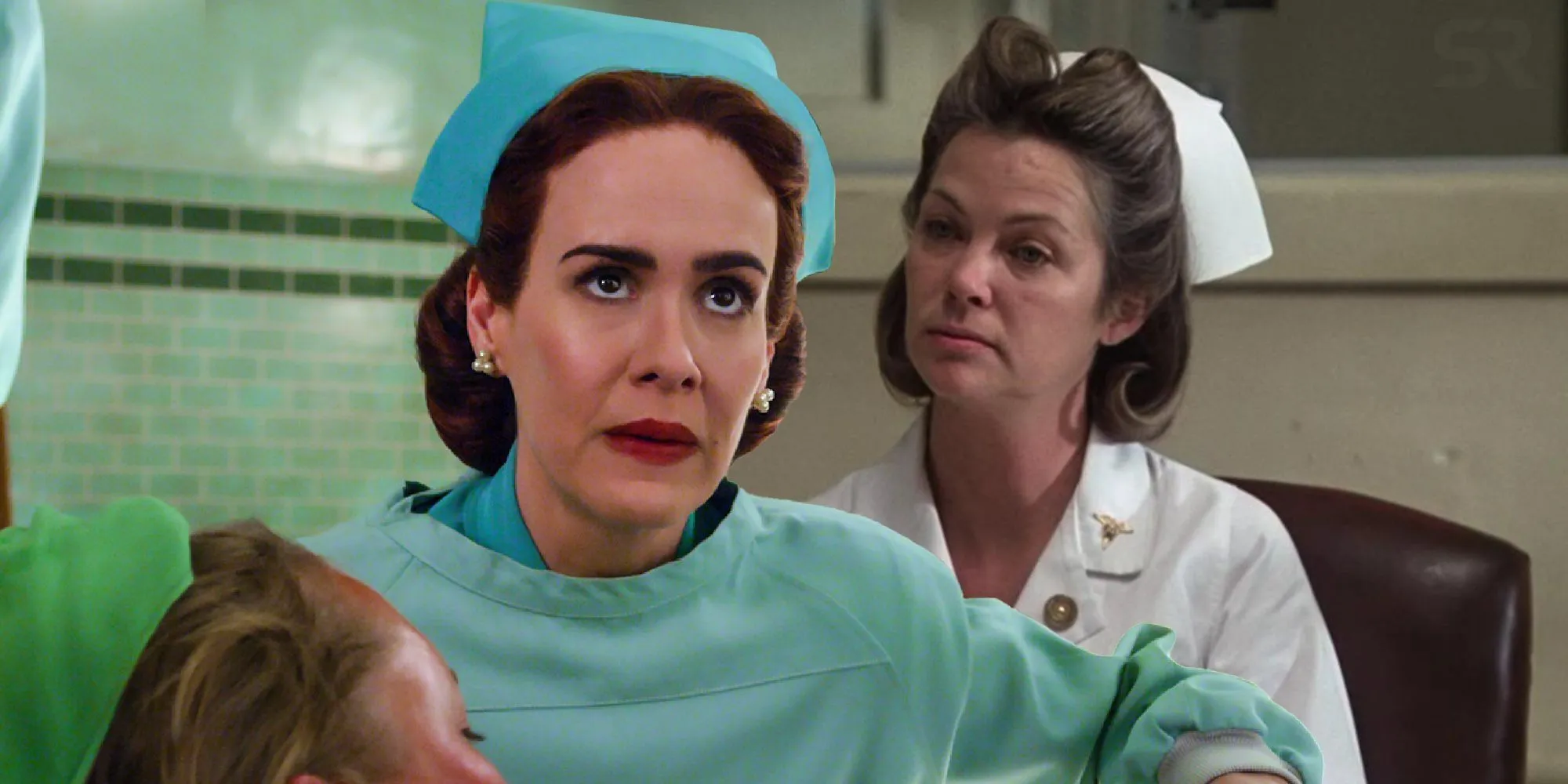
In *One Flew Over the Cuckoo’s Nest*, the cold and calculating Nurse Mildred Ratched, portrayed by Louise Fletcher, epitomizes the cruel bureaucracy of mental health institutions. As the head nurse at Salem State Hospital, she wields her power with sadistic pleasure, dominating the vulnerable patients in her care. Her absolute control is challenged by the rebellious Randle McMurphy, played by Jack Nicholson, leading to a tragic confrontation that solidifies her dark legacy when she opts for lobotomization over conceding to his defiance.
Fletcher’s chilling performance earned her an Academy Award for Best Supporting Actress, cementing Nurse Ratched as a symbol of authoritarian abuse within institutional settings. Though Ryan Murphy’s prequel series *Ratched* sheds light on her origins, Fletcher’s portrayal remains the definitive depiction of this iconic character.
14 Freddy Krueger
A Nightmare on Elm Street (1984)
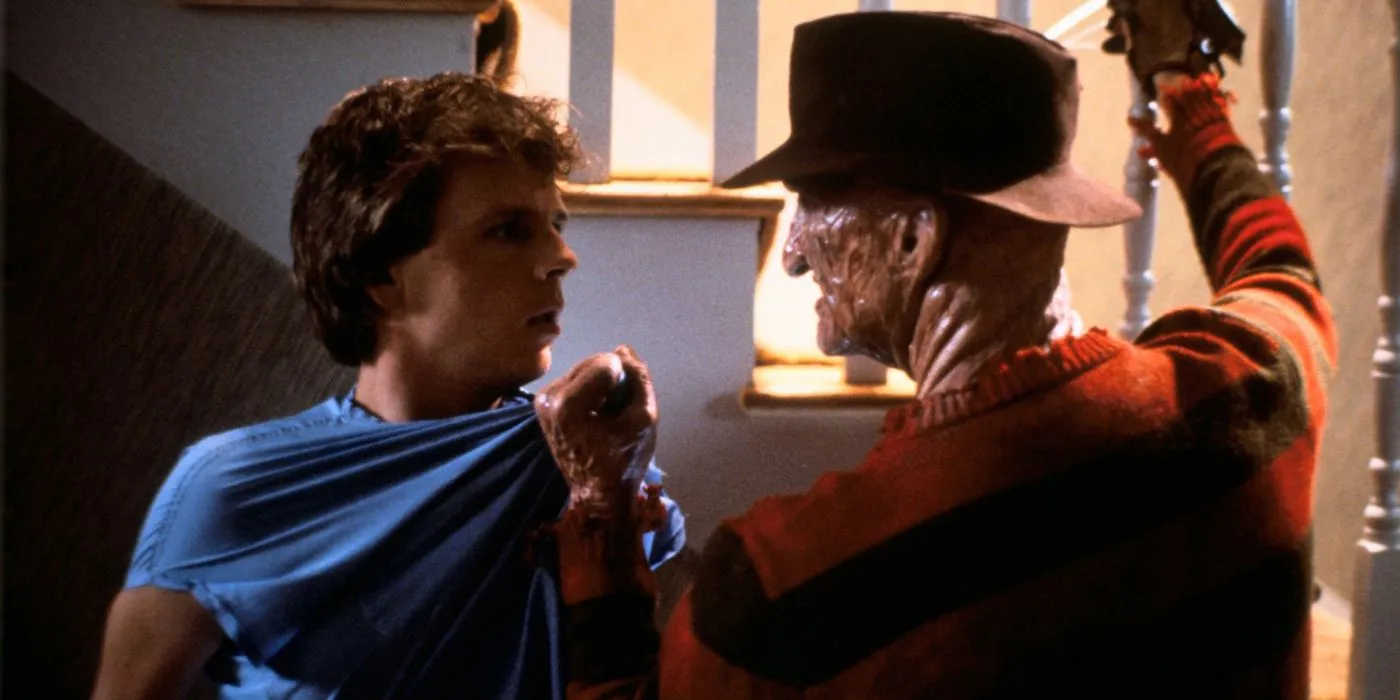
Few horror villains have left as indelible a mark as Freddy Krueger from *A Nightmare on Elm Street*. As a vengeful spirit of a serial killer who attacks his victims in their dreams, Freddy presents a terrifying notion: no refuge exists, not even in sleep. His iconic fedora and gloved hand outfitted with razor blades have solidified his image as a cultural horror icon.
Robert Englund’s performance throughout the franchise brings a captivating blend of menace and dark humor to the character. Freddy’s backstory—born of atrocities—adds layers to his character, transforming him into a profound representation of the nightmares that haunt every individual.
13 Annie Wilkes
Misery (1990)
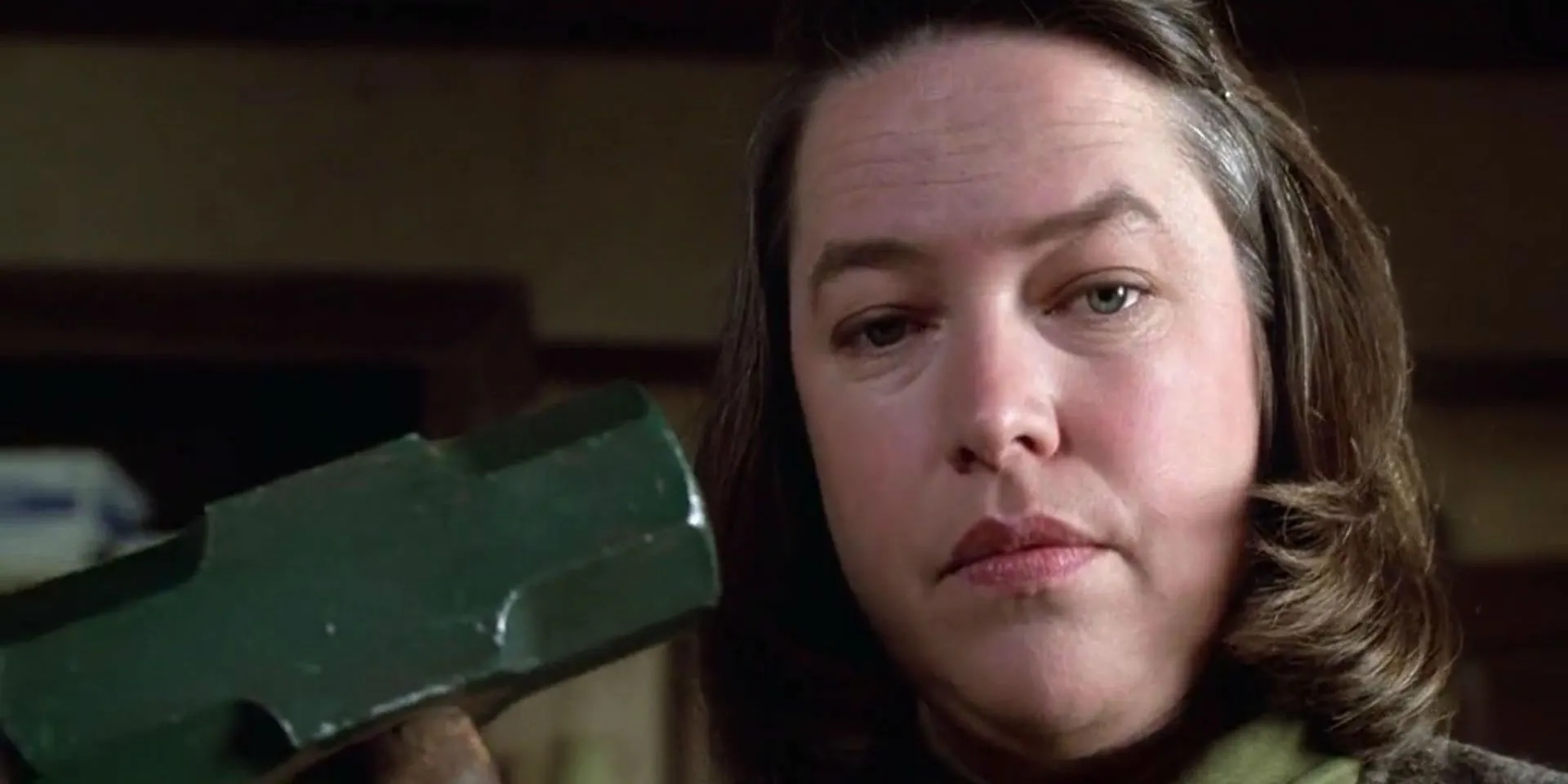
Stephen King’s oeuvre features numerous unforgettable horror villains, but Annie Wilkes, as played by Kathy Bates in *Misery*, stands out as particularly unsettling. Initially appearing as a devoted fan of author Paul Sheldon, Wilkes quickly reveals her true colors when she holds him captive, demanding that he rewrite his narrative to satisfy her obsessive fantasies.
Bates’ performance is hauntingly powerful, marked by erratic mood swings and an eerie calculating nature, effectively showcasing her character’s madness. Her Oscar-winning portrayal solidified Annie Wilkes as one of the most memorable villains in horror cinema.
12 Frank Booth
Blue Velvet (1986)
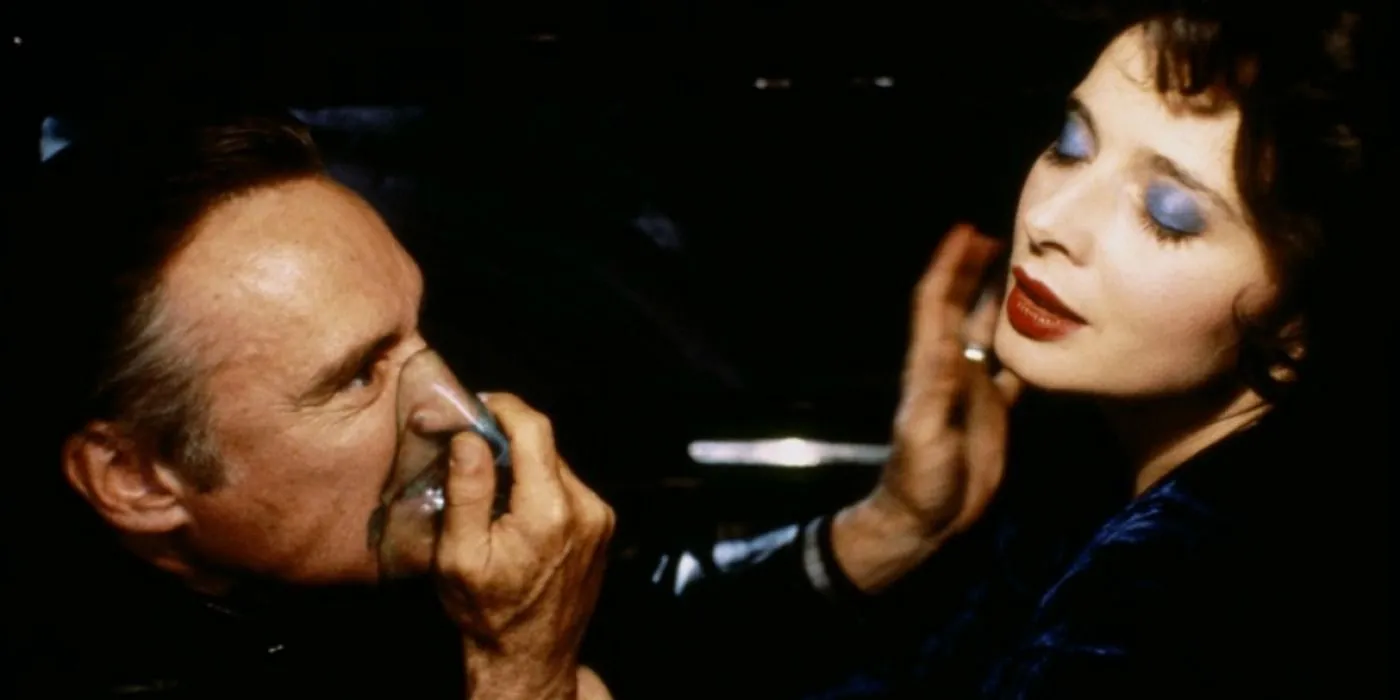
Dennis Hopper’s portrayal of Frank Booth in *Blue Velvet* captures the essence of psychological horror. As a violent drug dealer twisting innocent lives to suit his depraved desires, Frank embodies the most disturbing elements of human nature. His unpredictable temperament and split personality distort the lines of madness and sanity, creating a figure that is simultaneously terrifying and fascinating.
Hopper’s unsettling performance reshapes the viewer’s understanding of monstrosity, securing Frank Booth’s place as one of David Lynch’s most traditional yet bizarre characters.
11 The Terminator
The Terminator (1984)
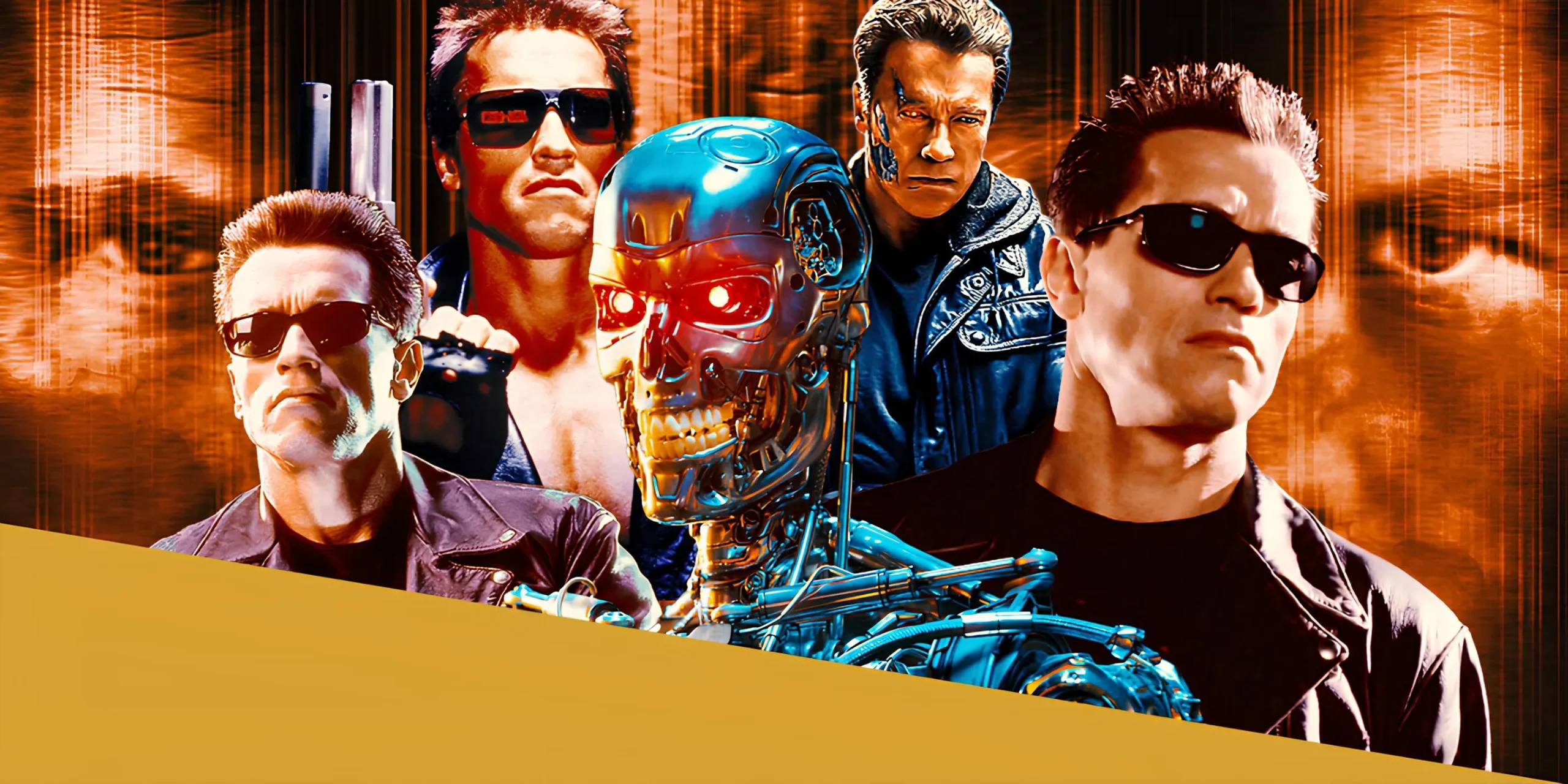
Representing one of cinema’s most formidable antagonists, the T-800 Terminator—brought to life by Arnold Schwarzenegger—is an embodiment of relentless evil. As a cyborg programmed to kill Sarah Connor and prevent her son from leading humanity’s resistance, the Terminator stands as a symbol of a machine devoid of empathy.
Schwarzenegger’s portrayal, with his imposing frame and iconic catchphrases, particularly “I’ll be back,” combines a sense of danger with intrigue, as audiences are captivated by the complexities of his character. This transformation from merciless villain to a reluctant hero in the sequel solidifies the Terminator’s lasting legacy.
10 Dolores Umbridge
Harry Potter (2001 – 2011)
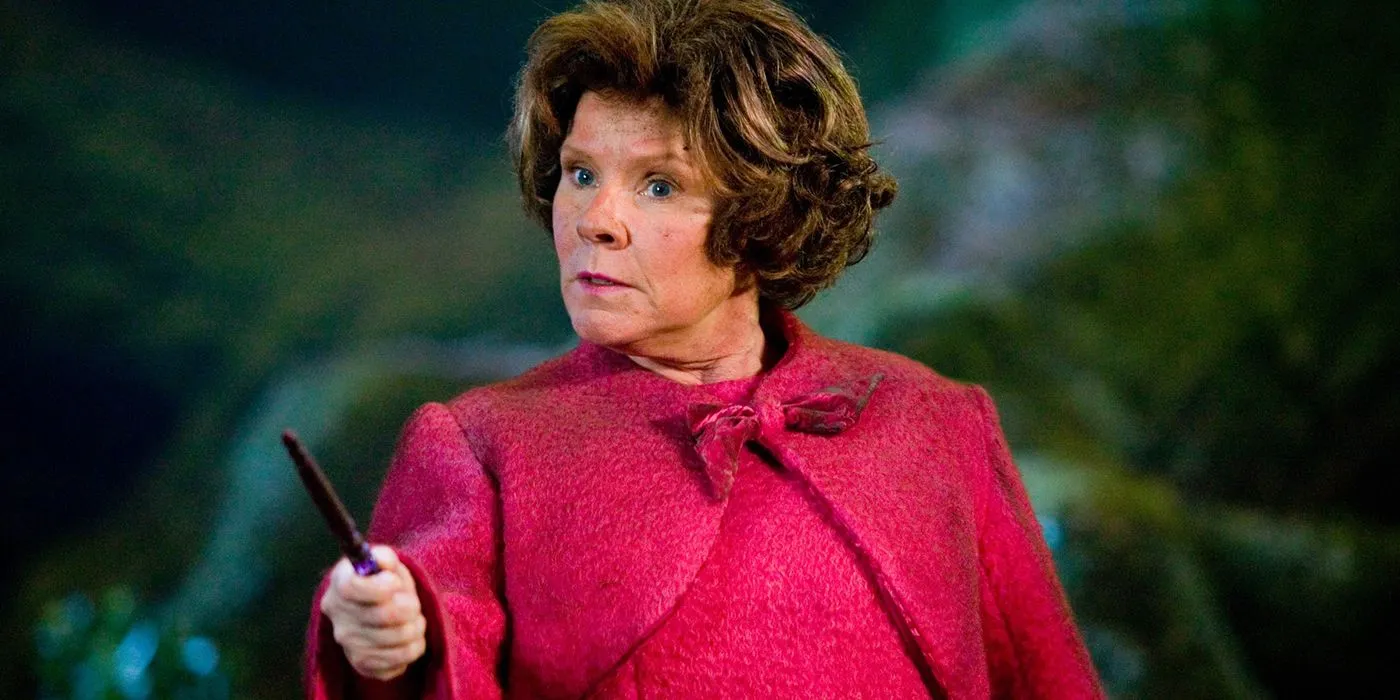
Dolores Umbridge, brought to life by Imelda Staunton in the *Harry Potter* series, becomes one of the most universally despised characters in literary and cinematic history. Her reign of terror as the High Inquisitor at Hogwarts and her abusive adherence to Muggle-hating beliefs mirror the cruelty and oppression of Voldemort’s followers, despite her being devoid of magical prowess.
J.K. Rowling herself noted that Umbridge’s thirst for control and punishment is equally reprehensible to Voldemort’s brutality, making her a unique and chilling antagonist who embodies the insidiousness of authoritarianism.
9 Hans Gruber
Die Hard (1988)
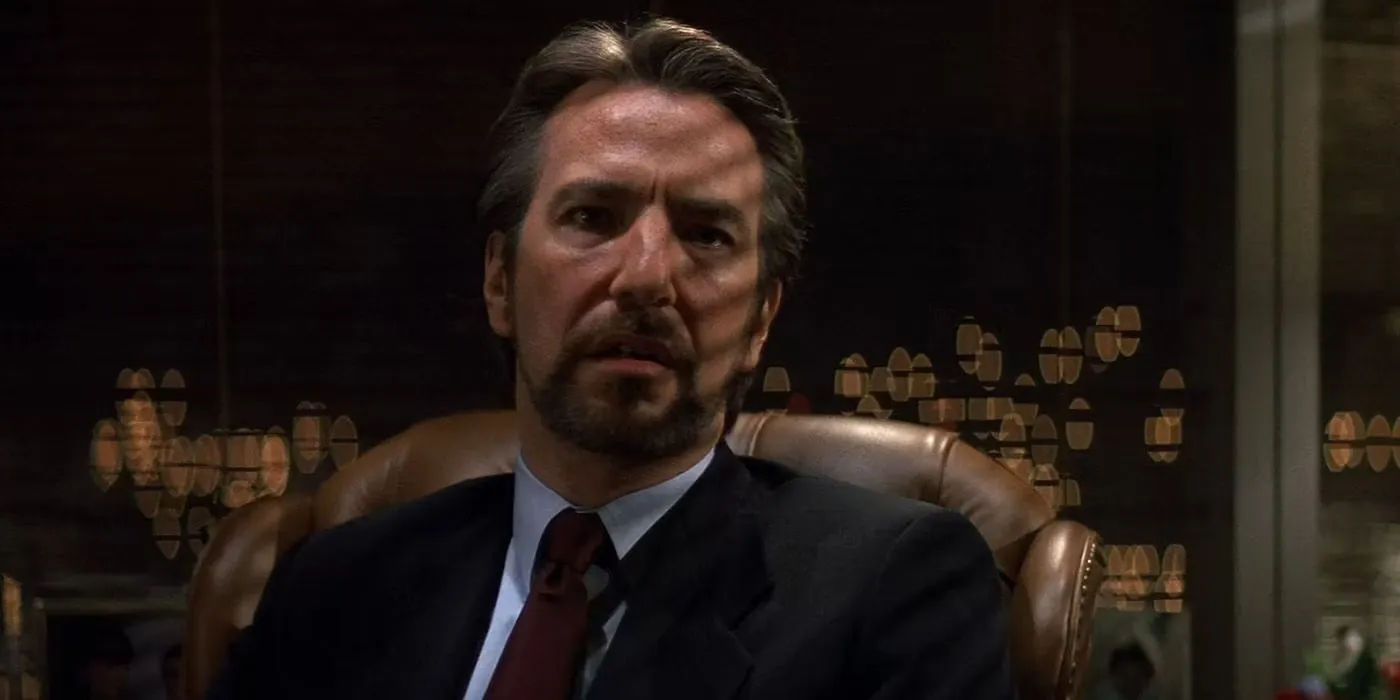
In *Die Hard*, Alan Rickman’s portrayal of Hans Gruber left an unforgettable mark on the action film genre. As a suave yet ruthless mastermind, whose elaborate plan to seize Nakatomi Plaza is thwarted by John McClane, Gruber is iconic for his intelligence and charm. His character’s dual nature—a combination of sophistication and menace—adds complexity to his villainy.
Even after meeting his doom, Gruber’s legacy continues in the franchise through his siblings, showcasing the lasting impact of Rickman’s nuanced performance.
8 John Doe
Se7en (1995)
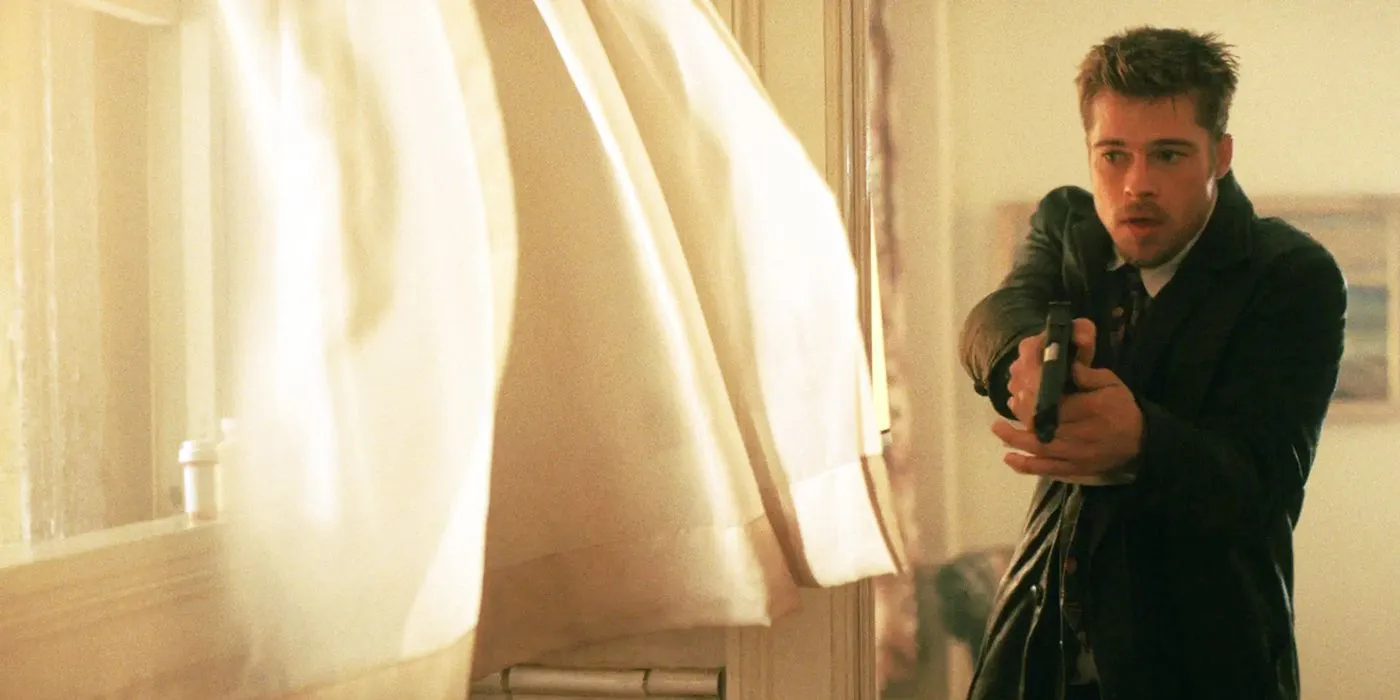
John Doe, portrayed by Kevin Spacey in *Se7en*, is a chilling reflection of societal decay, calculated in his methodical killings inspired by the Seven Deadly Sins. With limited screen time given to the character, he still resonates as a memorable villain through his unsettling calmness and the deeper philosophical implications of his actions.
Doe’s twisted actions serve as commentary on morality, driving the narrative toward an unforgettable climax that left audiences questioning the darker sides of human nature.
7 Loki
Marvel Cinematic Universe (2008 – Present)
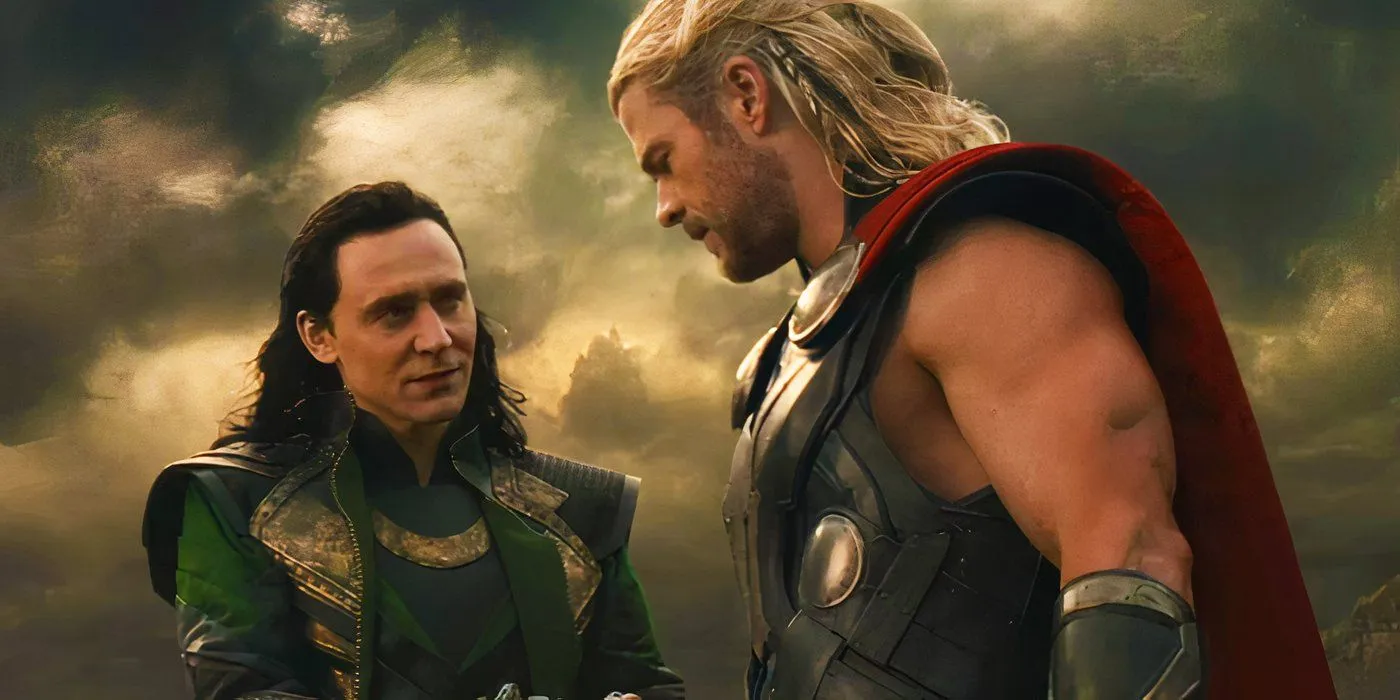
Beginning as the villainous brother of Thor, Loki’s character, played by Tom Hiddleston, evolved into a complex anti-hero throughout the Marvel Cinematic Universe. His unique charm, vulnerability, and cunning behavior resonated with audiences, making him one of the more multifaceted characters in modern superhero films.
Loki’s legacy transcends his antagonistic role, embodying themes of sibling rivalry and redemption. His journey through various narratives—from villain to reluctant hero—has solidified his position as one of the franchise’s most beloved figures.
6 Norman Bates
Psycho (1960)
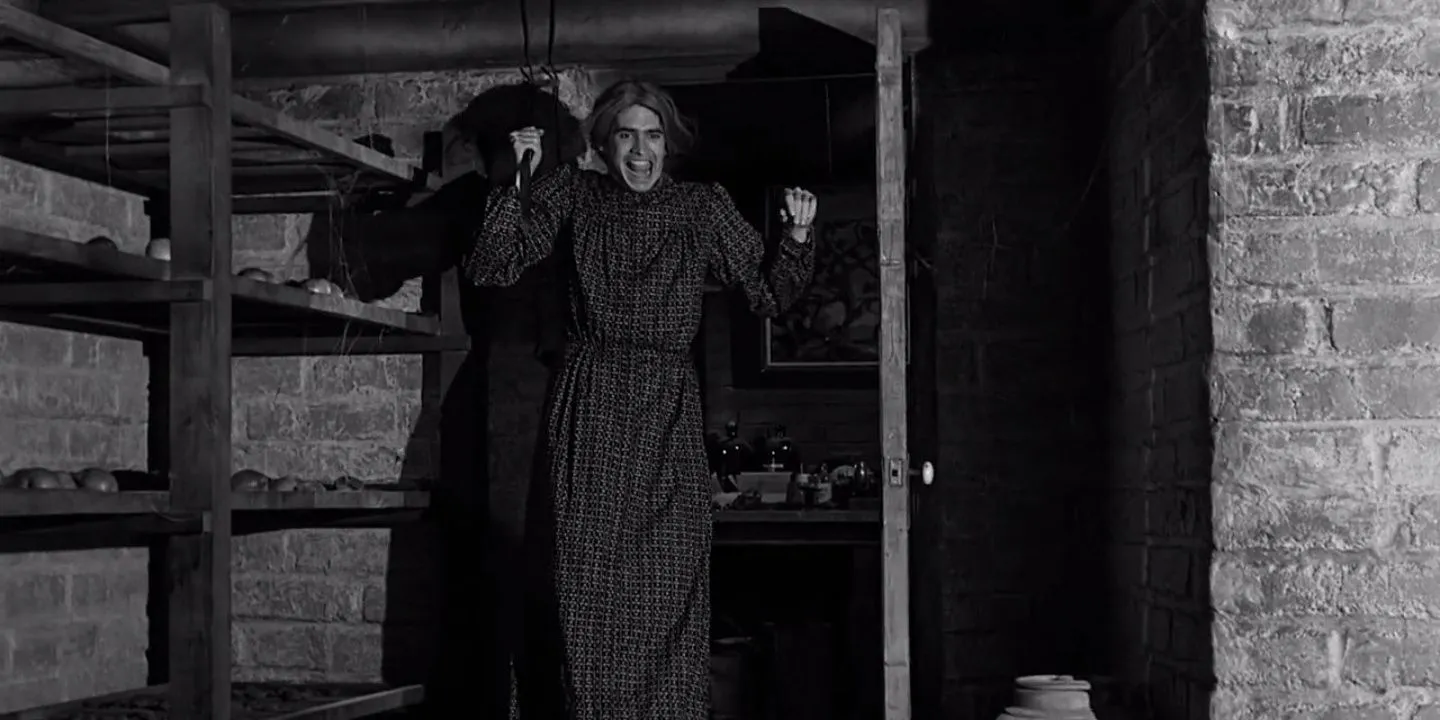
In *Psycho*, Norman Bates, played by Anthony Perkins, initially appears innocuous, yet as his character unfolds, viewers realize the depths of his psychological torment and the extent of his insanity. His split personality, where he mimics his deceased mother to justify his murderous actions, renders him a disturbing study of how trauma can warp the human psyche.
Based loosely on the infamous Ed Gein, Bates’ character left an indelible mark on the horror genre, spawning sequels and a prequel series that explored his dark origins and complexities further.
5 Hans Landa
Inglourious Basterds (2009)
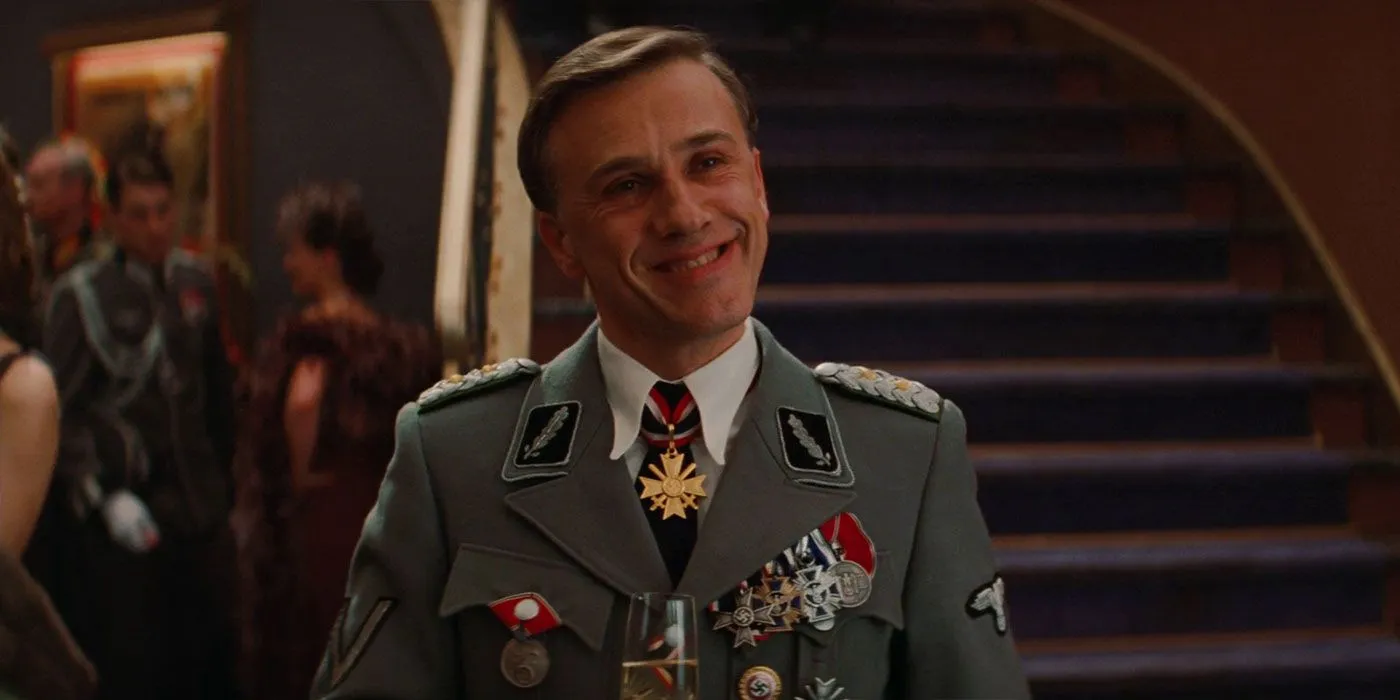
Christoph Waltz’s chilling performance as Hans Landa in *Inglourious Basterds* showcases a character that reflects both charm and malice. As a cunning Nazi officer, Landa’s interactions are suffused with a terrifying grace, underpinned by his capability for ruthlessness masked in genteel behavior. This duality contributes to the film’s remarkable narrative, culminating in a shocking climax.
Waltz’s portrayal redefined cinematic villains, earning him an Academy Award for Best Supporting Actor and elevating Landa into the ranks of memorable filmites.
4 Darth Vader
Star Wars (1977 – Present)
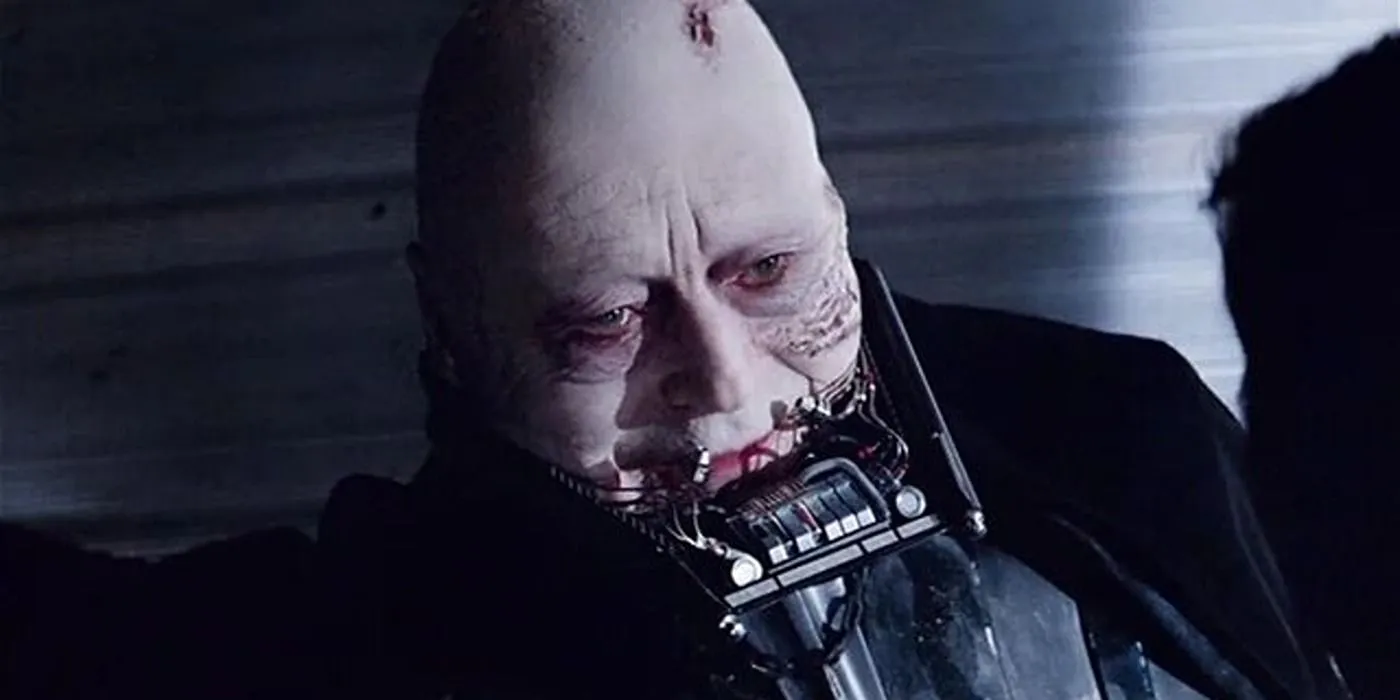
Darth Vader emerges as a seminal character portrayal in the *Star Wars* franchise. Initially introduced as a menacing force, Vader’s character arc reveals a deeply tragic backstory—Anakin Skywalker’s fall from grace serves as a poignant cautionary tale about the consequences of anger and manipulation.
His iconic reveal as Luke Skywalker’s father transforms him into a complex figure of internal conflict, illustrating the potential for redemption in even the darkest of characters. Vader remains a pivotal figure in film history, denoting the profound implications of choice, resilience, and the struggle between light and darkness.
3 The Joker
The Dark Knight (2008)

The Joker, as portrayed by Heath Ledger in *The Dark Knight*, is often regarded as the epitome of cinematic villainy. In Christopher Nolan’s reimagined Gotham, the Joker represents chaos personified—his anarchic tendencies and unhinged behavior offer a sharp contrast to Batman’s quest for order. Ledger’s performance, marked by its unsettling authenticity, showcases a villain who thrives on disruption and despair.
His chilling mantra of wanting to see the world burn resonates with audiences, further establishing the Joker as a timeless villain whose legacy is continually adapted and reinterpreted across various media by numerous actors.
2 Anton Chigurh
No Country for Old Men (2007)

In *No Country for Old Men*, Javier Bardem’s haunting depiction of Anton Chigurh transcends ordinary villainy, presenting a complex embodiment of nihilism and fate. Representing an almost supernatural force, Chigurh’s cold detachment and lethal precision transform him into a striking antagonist defined not just by his actions, but by his philosophy.
By often determining the fates of his victims through a coin toss, Chigurh emerges as a symbol of chance, further underscoring the randomness of violence in a complicated world. His unnerving calmness renders him both fascinating and terrifying, contributing to the film’s exploration of moral ambiguity and existential dread.
1 Dr. Hannibal Lecter
The Silence of the Lambs (1991)

Anthony Hopkins’ portrayal of Dr. Hannibal Lecter in *The Silence of the Lambs* sets the standard for cinematic villains. Despite a limited amount of screen time, Dr. Lecter’s unsettling intelligence and charm create a deeply memorable figure. His cat-and-mouse dynamic with FBI agent Clarice Starling, played by Jodie Foster, underscores the psychological tension that makes the film a classic.
Lecter’s multifaceted character—intellectual yet dangerously violent—demonstrates the complex nature of evil. His legacy continues through sequels and adaptations, affirming his status as one of film’s greatest antagonists, whose cultured persona juxtaposed with horrendous crimes intrigues and horrifies audiences alike.
Source: BBC




Leave a Reply ▼